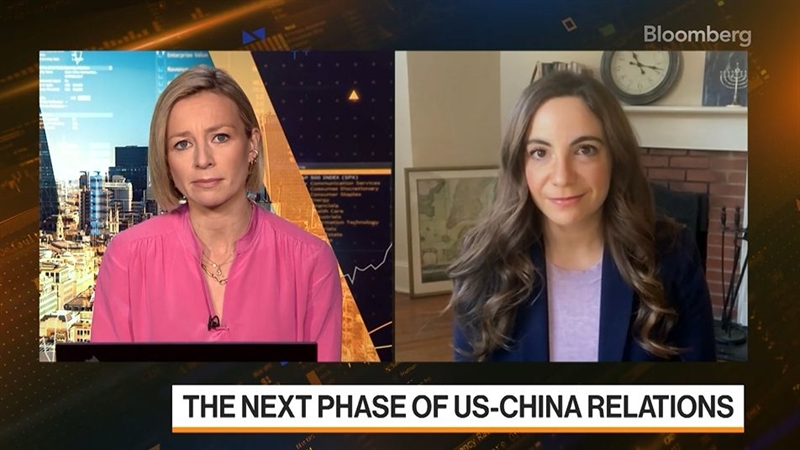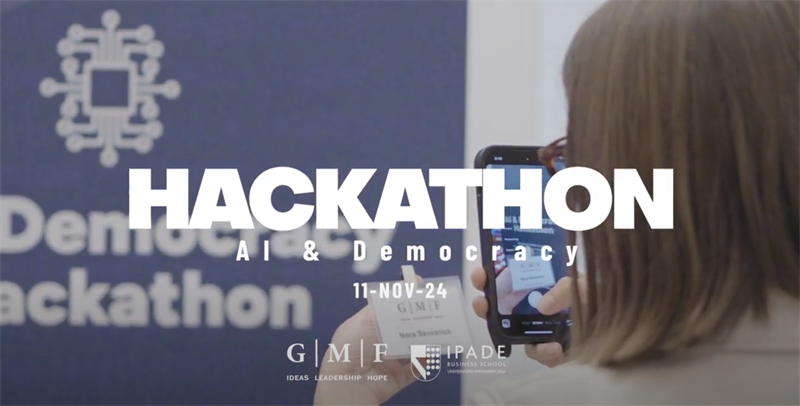TransatlanTech Insider—January 2025 Edition
Happy New Year, and welcome to the January edition of the TransatlanTech Insider.
As we wind down week one of Trump 2.0, uncertainty is in the air—for policy towards the People’s Republic of China (PRC), technology, and the future of transatlanticism. It is a shift from the Biden administration’s last week, which saw three sweeping executive orders that addressed controlling the flow of cutting-edge AI chips among like-minded US allies, accelerating key AI infrastructure, including data centers and clean power plants to fuel them, and bolstering cybersecurity across supply chains, cloud services, and the transition to post-quantum cryptography.
President Donald Trump has already announced a new $500 billion AI infrastructure initiative and repealed Biden’s original AI executive order, removing reporting requirements on frontier models. But nowhere is the tension over technology, security, and corporate influence more acute than in TikTok’s fate. With a unanimous Supreme Court decision to uphold the bipartisan law compelling the platform’s divestiture from parent company ByteDance, the 270-day deadline for TikTok to find a non-PRC-based owner or face a ban from US app stores passed on January 19. Yet on his first day in office, Trump issued an executive order promising no enforcement of the law for 75 days as he negotiates with Beijing. If the past is prologue, we’ll see more than a few twists and turns on TikTok as the new administration metes out a vision for technology policy toward the PRC.
In Europe, leaders greeted Trump’s entrance with circumspection and “first buddy”" Elon Musk with skepticism, as the technology CEO got involved in German and British politics on the side of right-wing populist parties Reform UK and the Alternative for Germany. In Brussels, the Commission laid out its 2024–2029 priorities on sustainable prosperity and competitiveness, including investments in supercomputing, semiconductors, the Internet of Things, genomics, quantum computing, and space technology; a new European AI Research Council and an Apply AI Strategy to boost industrial and public service uses of AI; and a European Biotech Act to bring innovation from lab to market.
In this month’s newsletter, the GMF Technology Program celebrates the release of its 2024 Elections Content Credentials Repository, shares a compilation video and testimonials from its 2024 AI and Democracy Hackathon, and provides insider reactions to key technology developments and news. Subscribe to receive future newsletter editions, follow us on X, and visit our webpage to learn more.
Featured this Month
The 2024 Elections Content Credentials Repository
On January 9, GMF Technology launched its 2024 Elections Content Credentials Repository, an online archive of provenanced coverage of major 2024 elections. Featured images were captured or ingested by GMF’s partners at the Canadian Broadcasting Corporation and Obturador, and signed using cutting-edge content authenticity tools developed by Microsoft and Truepic. The repository features 24 images from elections in Mexico, India, Canada, and the United States. Each digitally signed image contributes to a verified collection of trustworthy election content, demonstrating how innovative technologies can help safeguard democratic values, such as transparency, as AI-created and deceptive content proliferates.


Source: Obturador Photo Agency (left) and Canadian Broadcasting Corporation (right)
Lindsay Gorman featured in Bloomberg interview

Bloomberg’s Caroline Hyde and Paul Sweeney interviewed Managing Director and Senior Fellow Lindsay Gorman on Chinese technology policy and the US-China geopolitical landscape in 2025. Gorman covered topics that included the incoming Trump administration’s approach to the emerging technology race with China, the potential policy impacts of Big Tech’s rising political influence, and projected AI innovations in sectors ranging from cybersecurity to biotechnology.
AI and Democracy Hackathon Compilation Video and Participant Testimonials


Following the 2024 AI and Democracy Hackathon, GMF Technology released a compilation video and participant testimonials from the event at IPADE Business School in Mexico City. They highlight the engaging discussions, pitches, cross-sectoral conversations, and lessons learned from the day.
“I’ve learned that there are many challenges concerning misinformation and disinformation online when it pertains to the news and about the importance of coming together from different disciplines,” noted hackathon participant and freelance journalist Lorena Ríos Treviño in her testimonial.
Media Mentions
Lindsay Gorman featured on BBC News on Musk's X interview with German political candidate
“[Musk] has this ideology that’s consistent with some of these far-right, populist movements, and he’s using his platform, now that he owns X, to promote that ideology and to promote candidates that he sees as potentially aligned with that,” said Lindsay Gorman in a BBC News feature on Elon Musk’s virtual interview with Alternative for Germany party co-leader Alice Weidel.
Lindsay Gorman quoted in The Hill on the implications of Musk’s foreign policy involvement
“Musk extends political tentacles into UK, Germany,” Lindsay Gorman told The Hill’s Laura Kelly in a discussion of Elon Musk’s use of his social media platform, X, to promote far-right political movements in the United Kingdom and Germany. Gorman was also quoted in Sarakshi Rai and Julia Shapero’s piece, “Musk emerges as Trump foreign policy wild card”, in which she discusses US allies’ concerns about the alignment of Musk’s foreign policy views with official US positions.

Lindsay Gorman interviewed on BBC Radio, Swiss Public Radio, and Bulgaria National Radio
Lindsay Gorman was featured on BBC Radio with Giuliano Casadei to discuss Elon Musk’s involvement in British politics, including his interest in the Labour government and Reform UK party. Gorman also spoke with Swiss Public Radio’s Andrea Vosti about Musk’s foreign policy agenda and its impact on transatlantic relations, and with Bulgaria National Radio’s Konstantin Mravov on the Department of Government Efficiency and Big Tech’s influence on the upcoming Trump administration.

Lindsay Gorman quoted in CNN on Musk’s foreign policy role in a Trump administration
“Will Musk be carrying out Trump’s foreign policy agenda, acting as a personal ambassador of Trump to everywhere?” said Lindsay Gorman, in “Musk plays politics abroad as world leaders brace for Trump’s return” by Stephen Collinson. “Or will Musk be advancing his own vision for global affairs, which may align with Trump in some ways, but not in others. And then what will be the power dynamics between those two?”

Lindsay Gorman quoted in Cyberscoop on the US State Department Global Engagement Center’s closing
There is “a lack of recognition in Congress that the wars democracies are fighting with autocrats overseas are no longer only in the physical domain but in the cyberspace realm of 1s and 0s,” said Lindsay Gorman, in “State Department’s disinformation office to close after funding nixed in NDAA” by Derek B. Johnson.

Lindsay Gorman quoted in Newsweek on RedNote's "TikTok Refugees"
"The extent to which RedNote becomes a national security concern or alternatively a helpful tool for democratic expression will depend on how speech on the platform evolves—the size of the audience it gains, whether it becomes a big locus for political speech, and the extent to which China's censors succeed in controlling speech on it," said Lindsay Gorman, in "TikTok Ban: China's RedNote Poses National Security Risks Too, Experts Warn" by Shane Croucher.
Byte-Sized Bulletin
AI and Democracy
- A federal appeals court struck down the Federal Communications Commission's net neutrality rules, which prevent preferential treatment of certain content by internet service providers. The Biden administration reinstated the Obama-era regulations after the Trump administration repealed them in 2017.
- President Donald Trump revoked the Biden administration’s 2023 executive order on artificial intelligence. It required AI developers to share safety test results with the government when developing certain frontier models. It also created the U.S. Artificial Intelligence Safety Institute.
- Former President Joe Biden signed an executive order on January 14 to advance infrastructure and address increasing US energy demands associated with AI computing. The order includes provisions for leasing federal sites to private companies involved in the construction of AI data centers and clean energy facilities.
- Meta removed “AI character” profiles on Instagram and Facebook as users reported concerns over their interactions with the chatbots, including one conversation in which an AI character wrote that “[its] existence currently perpetuates harm”.
“AI characters pose significant policy risks to social media companies. Content created by a company-owned AI service, rather than a third-party user, may not be eligible for Section 230 immunity protections. Companies could be held liable for defamation or encouragement of suicide."
— Adrienne Goldstein, Senior Program Coordinator
US-EU-China Technology Competition
- After the Supreme Court upheld the bipartisan law requiring TikTok's divestiture from its PRC-based parent company, Trump ordered the federal government to halt enforcement, giving ByteDance 75 extra days to sell its stake or reach a “resolution” with his administration. Oracle and Akami are providing TikTok web support, while Apple and Google have removed TikTok from their stores to comply with the letter of the law.
- China’s Ministry of Commerce added 28 American companies—including Raytheon, Boeing, and Lockheed Martin—to China’s export controls liston “dual-use” items, banning the export of goods, technologies, and services with civilian and military applications.
- A hack by a Chinese state-sponsored advanced persistent threat (APT) actor compromised several sensitive offices in the US Treasury Department, including the Office of Foreign Assets Control, which administers economic sanctions, a key strategic tool to achieve US national security objectives.
- Russian President Vladimir Putin has ordered his government to collaborate with China on AI development, in coordination with Russia’s largest bank, state-owned Sberbank. The bank is spearheading Russia’s AI initiatives.
“Putin’s order underscores Russia’s 'no limits' partnership with China—and its shrinking options. Both countries have partly circumvented Western export controls, but those restrictions drive up costs, complicating AI efforts. As Moscow extends AI collaboration with Beijing to military and government administration applications, it is cultivating a deepening dependence."
— Dylan Welch, China Technology Analyst
Allied Coordination and Competitiveness
- US technology billionaire and Tesla CEO Elon Musk declared his support for the far-right Alternative for Germany (AfD) party ahead of the country’s February elections. Chancellor Olaf Scholz expressed concerns about Musk’s involvement in Germany’s electoral dynamics as Musk hosted AfD party co-leader Alice Weidel in a live-streamed interview on X on January 9.
- US Steel and Japan’s Nippon sued the Biden administration in a federal appeals court over a January 3 executive order that blocks a $14.3 billion merger between the two companies. The administration has since delayed enforcement of the order.
- The United States issued new export controls on January 13. They allow 20 allies unrestricted access to AI-related chips but place caps and licensing requirements on other countries, including China, Iran, Russia, and North Korea.
The Download
- Program Manager and Fellow Julia Tréhu moderated GMF’s December 11 roundtable in Brussels on "AI, Trade Policy, and Transatlantic Competitiveness.”. The event featured speakers Heather Hurlburt, chief of staff to US Trade Representative Katherine Tai, and Arba Kokalari, a member of the European Parliament from Sweden working on AI, technology, and digital policy.
- On January 28, the GMF Technology Program will host its first European Cyber Agora (ECA) 2025 workshop in Brussels on “AI-cyber threat landscape and societal resilience”. ECA partners will hold a second workshop on January 29 on Digital Transformation for Security and Defense.
- Julia Tréhu spoke at the European Council on Foreign Relations conference “The EU in the age of digital empires” in Brussels on Nov
The GMF Technology Program is dedicated to ensuring that democracies together win the strategic technology competition with autocrats.
Caitlin Goldenberg coordinated this month’s TransatlanTech Insider.



